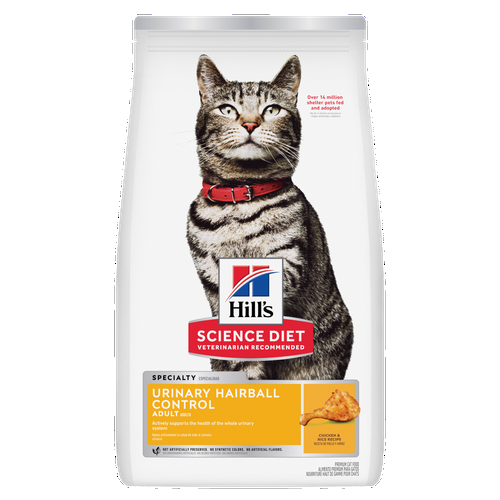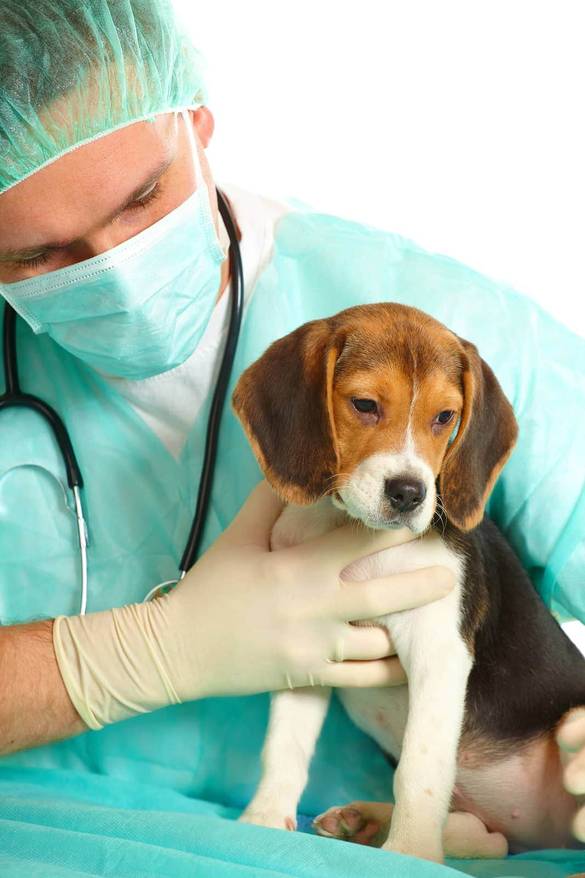
-
Find the right food for your petTake this quiz to see which food may be the best for your furry friend.Find the right food for your petTake this quiz to see which food may be the best for your furry friend.Featured products
 Adult Small & Mini Lamb Meal & Brown Rice Recipe Dog Food
Adult Small & Mini Lamb Meal & Brown Rice Recipe Dog FoodFor the faster metabolism of Small & Mini dogs
Shop Now Adult 7+ Small & Mini Chicken & Brown Rice Recipe Dog Food
Adult 7+ Small & Mini Chicken & Brown Rice Recipe Dog FoodFor the unique nutritional needs of mature Small & Mini dogs
Shop Now Hill's Science Diet Adult Oral Care Chicken, Brown Rice & Barley Recipe Dog Food
Hill's Science Diet Adult Oral Care Chicken, Brown Rice & Barley Recipe Dog FoodClinically proven kibble technology to reduce plaque & tartar build-up
Shop NowFeatured products Adult Indoor Chicken Recipe Cat Food
Adult Indoor Chicken Recipe Cat FoodSupports energy level and beautiful fur in indoor cats
Shop Now Adult Urinary Hairball Control Chicken & Rice Recipe Cat Food
Adult Urinary Hairball Control Chicken & Rice Recipe Cat FoodActively supports the health of the whole urinary system
Shop Now Hill's Science Diet Adult Sensitive Stomach & Skin Dog Food
Hill's Science Diet Adult Sensitive Stomach & Skin Dog FoodHighly digestible recipe, gentle on stomachs. Nourishes skin & promotes a lustrous coat
Shop Now -
Featured articles
 My Pet Ate a Lizard — What Should I Do?
My Pet Ate a Lizard — What Should I Do?Learn what to do if your pet eats a lizard, including whether they can be toxic and symptoms to keep an eye on when they've swallowed one.
Read More Easy DIY Dog & Cat Toys: Nine of Our Favorites
Easy DIY Dog & Cat Toys: Nine of Our FavoritesBrowse this comprehensive guide for several of our favorite DIY dog and cat toys that are sure to put a little pep in your pet's step.
Read More 15 Pet-Friendly Cities Ideal for a US Road Trip
15 Pet-Friendly Cities Ideal for a US Road TripCheck out our list of pet-friendly U.S. cities that are excellent travel options, offering off-leash dog parks and pet-friendly restaurants & hotels.
Read More -


As a pet parent, you may feel overwhelmed by the number of new puppy shots for the furry friend you've welcomed into your family. You also may be wondering, what shots do puppies need, and why?
Vaccines protect your pup from infectious diseases, like rabies and kennel cough, by building up his immunity.
"Immunity is a complex series of defense mechanisms by which an animal is able to resist a disease or infection, or at least resist the harmful consequences of the infection," says VCA Animal Hospitals. Vaccines, discovered by Dr. Edward Jenner in the late eighteenth century and later developed by Louis Pasteur in the late nineteenth century, protect animals (and humans) from infectious organisms that contain antigens by providing immunity.
Since vaccines expose your pup to the disease for the first time, it gives him time to build up antigens to fight it off, ensuring that his immune system will react more quickly to that particular disease in the future. No vaccine is 100 percent guaranteed — there always is a chance your puppy still may acquire an illness. Vaccinating your dog goes a long way to help keep your pup healthy and happy as he grows.
What Shots Do Puppies Need?
When planning your dog's vaccines, keep in mind that scheduling new puppy shots is not done on a one-size-fits-all basis. You and your veterinarian will work out a schedule that works best for your puppy, taking into consideration his age, health, lifestyle and other factors. Here are some of the most common vaccines puppies will be expected to receive.
Rabies
A deadly virus that can affect all mammals, including humans, rabies is at the top of the list of new puppy shots. Bats, raccoons and other wild animals, including stray dogs and cats, are common carriers of this virus and, when acquired (typically through a bite or contact with saliva), the virus transfers to the dog's spinal cord and brain.
The vaccine is required by law in countries around the world, including most states in the U.S. According to American Veterinary Medical Association, rabies vaccinations have successfully and effectively prevented most pets from contracting the disease. That makes this vaccination important not only for your dog, but for the safety of other animals, too.
Distemper
Another viral disease, distemper is highly contagious. It spreads through the air, so dogs can easily pass it between each other. Once infected, it can progress to affect the brain, lungs and intestines.
Any dog can catch distemper. However, according to the Pet Health Network, puppies are especially vulnerable to distemper because their immune systems are not fully developed. That's why it's especially important to talk to your vet about getting your new puppy protected.
Unfortunately, there is no known cure for distemper. That's why vaccination is critical to aid in preventing this communicable disease.
Parvovirus
Parvo is a virus typically seen in the youngest of puppies that aren't vaccinated. It is a deadly disease, but it is treatable.
"While it might be tempting to take your new puppy with you everywhere you go, her health depends on keeping her safe until she is fully vaccinated against this life-threatening disease," says the American Kennel Club. Don't allow your pup in areas where he's most likely to acquire this virus, such as dog parks and kennels, until he is fully vaccinated.


Tasty Tips
Leptospirosis
According the College of Veterinary Medicine at the University of Illinois, leptospirosis is the most common zoonotic disease in the world. The term zoonotic describes a disease that normally appears in animals but can be transmitted to humans.
Leptospirosis is contagious because it lives in water that has been contaminated with infected urine. Since this disease affects the kidneys, the bacteria multiply there and then shed when the infected mammal urinates. Dogs that sometimes enjoy drinking water from unknown or compromised sources are at risk of catching it.
Dogs can become infected if they drink from streams, rivers, lakes or other water sources, or if they come into contact with wildlife or farm animals that have been exposed to Leptospira bacteria. However, just because you are an urban dweller, your pup is not out of the woods (so to speak), as this condition is becoming rapidly more prevalent in all areas across the globe.
Kennel Cough
This vaccine is given to prevent infectious canine tracheobronchitis, a virus more commonly called kennel cough or canine cough, a highly contagious upper respiratory illness in dogs. Bordetella is a bacterium that settles in the upper respiratory tract, say the researchers at UofI. If your pup spends time in a boarding facility, this vaccine is particularly important. Bordetella is the only bacteria that this vaccine covers, as there are other bacteria and viruses than can cause kennel cough in your pup.
Talk to your vet about vaccinating your puppy for kennel cough if you anticipate the need to board him in the future.
Canine Influenza Virus
If you're considering boarding your puppy and there's a known canine influenza outbreak in your area, talk to your vet about vaccinating him.
Cornell University's College of Veterinary Medicine notes that animals that have lived in shelters or confined areas are common carriers of this virus. This vaccine is a non-core vaccine, meaning that it is an optional new puppy shot, and should be considered seriously as part of your new puppy shot schedule, particularly if you plan to board your little guy.
Lyme Disease
This vaccine is especially important for dogs that spend time traipsing through forests and other densely wooded areas, places where they're more likely to acquire ticks. If you know you'll be traveling places where Lyme disease is prevalent, make sure you notify your vet. According to researchers at the UC Davis School of Veterinary Medicine, your puppy may need other boosters to protect him, in addition to the vaccine.
Consult Your Vet
Another note of importance: If you plan to travel locally or internationally with your canine companion, you may be required to vaccinate your puppy according to the guidelines of the location to which you are traveling, so make sure you check with your destination's laws regarding animal vaccinations. Some boarding facilities also require certain vaccines before they will allow your dog to stay there.
Some dogs may have adverse reactions to some vaccines, so you should keep an eye out for any abnormal symptoms or behaviors. Working closely, you and your vet will develop a vaccination schedule for new puppy shots that works best, one that reduces his chances of acquiring an illness and that promotes good health throughout your puppy pal's happy life.


Christine O'Brien is a writer, mom, and long-time cat parent whose two Russian Blues rule the house. Her work also appears in Care.com, What to Expect, and Fit Pregnancy, where she writes about pets, pregnancy, and family life. Find and follow her on Instagram and Twitter @brovelliobrien.
Related products

Clinically proven kibble technology to reduce plaque & tartar build-up

For the faster metabolism of Small & Mini dogs

Improves everyday ability to get up & go

For the unique nutritional needs of mature Small & Mini dogs
Related articles

Understand the role that Omega-6 and Omega-3 fatty acids play in your dog's overall health, and how you can ensure they are getting enough.

Your dog's coat and skin are a big part of your dog's overall health. Ensure you keep your dog's coat healthy, by following these simple tips.

Discover how the field of dog science is giving us more and more insights into the inner workings of our furry best friends.

Learn basic steps & precautions for treating a cut on your dog, including what you can put on the cut, and when you should take them to the vet.

Put your dog on a diet without them knowing
Our low calorie formula helps you control your dog's weight. It's packed with high-quality protein for building lean muscles, and made with purposeful ingredients for a flavorful, nutritious meal. Clinically proven antioxidants, Vitamin C+E, help promote a healthy immune system.
Put your dog on a diet without them knowing
Our low calorie formula helps you control your dog's weight. It's packed with high-quality protein for building lean muscles, and made with purposeful ingredients for a flavorful, nutritious meal. Clinically proven antioxidants, Vitamin C+E, help promote a healthy immune system.


